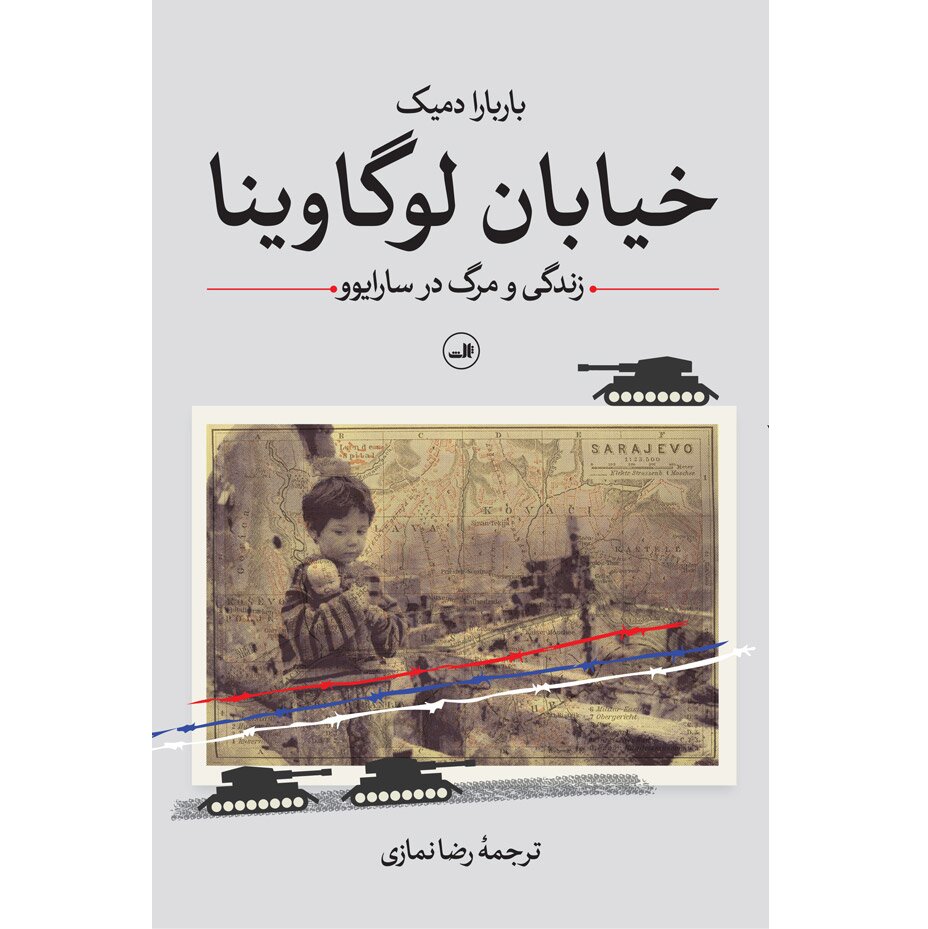Barbara Demick’s book about living in Sarajevo during war published in Persian

TEHRAN-The Persian translation of the book “Logavina Street: Life and Death in a Sarajevo Neighborhood” written by Barbara Demick has been released in Iranian bookstores.
Saless Publication has recently published the book in 272 pages with a translation by Reza Namazi, Mehr reported.
Logavina Street was a microcosm of Sarajevo, a six-block-long history lesson. For four centuries, it existed as a quiet residential area in a charming city long known for its ethnic and religious tolerance. On this street of 240 families, Muslims and Christians, Serbs and Croats lived easily together, unified by their common identity as Sarajevans. Then the war tore it all apart.
As she did in her groundbreaking work about North Korea “Nothing to Envy: Ordinary Lives in North Korea,” award-winning journalist Barbara Demick tells the story of the Bosnian War and the brutal and devastating three-and-a-half-year siege of Sarajevo through the lives of ordinary citizens, who struggle with hunger, poverty, sniper fire, and shellings.
Originally published in 1996, “Logavina Street” paints this misunderstood war and its effects in vivid strokes—at once epic and intimate—revealing the heroism, sorrow, resilience, and uncommon faith of its people.
In the book, meet a teenager whose parents were killed by a mortar shell in front of her, a dentist debating whether to emigrate to America, and a besotted husband separated from his wife by war, obsessing about her lipstick color.
Barbara Demick, 65, is an American journalist. She spent much of 1993 through 1995 on one street in the Bosnian capital with a front-row seat as a country was torn apart by ethnic warfare and a modern city was held under siege. She watched and recorded as neighbors, Muslim, Serb, and Croat, tried to keep their society intact against the forces of intolerance.
Demick grew up in Ridgewood, New Jersey. She attended Yale University, graduating with a bachelor's degree in economic history. She was a correspondent for the Philadelphia Inquirer in Eastern Europe from 1993 to 1997. Along with photographer John Costello, she produced a series of articles that ran from 1994 to 1996 following life on one Sarajevo street over the course of the war in Bosnia. The series won the George Polk Award for international reporting, and the Robert F. Kennedy Journalism Award for international reporting and was a finalist for the Pulitzer in the features category. She was stationed in the Middle East for the newspaper between 1997 and 2001.
In 2001, Demick moved to the Los Angeles Times and became the newspaper's first bureau chief in Korea. Demick reported extensively on human rights in North Korea, interviewing large numbers of refugees in China and South Korea. She focused on economic and social changes inside North Korea and on the situation of North Korean women sold into marriages in China. She wrote an extensive series of articles about life inside the North Korean city of Chongjin.
In 2006, her reports about North Korea won the Overseas Press Club's Joe and Laurie Dine Award for Human Rights Reporting and the Asia Society's Osborn Elliott Prize for Excellence in Asian Journalism.
Demick was a visiting professor at Princeton University in 2006-2007 teaching Coverage of Repressive Regimes through the Ferris Fellowship at the Council of the Humanities. She moved to Beijing for the Los Angeles Times in 2007 and became Beijing bureau chief in early 2009.
SS/SAB
Leave a Comment